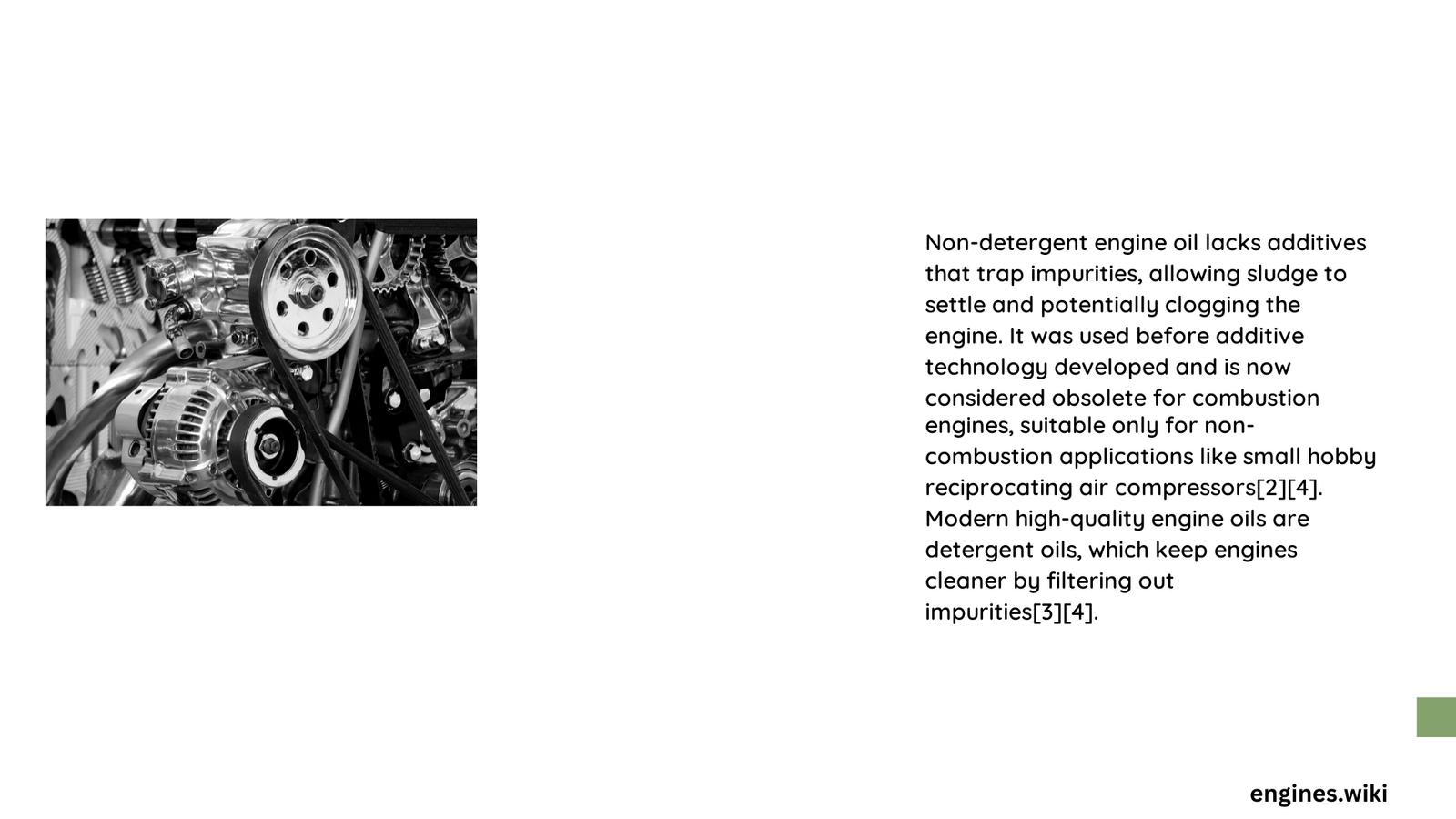Non-detergent engine oils represent a specialized lubricant category designed for specific automotive and mechanical applications. Unlike standard detergent oils, these lubricants lack advanced cleaning additives and offer unique performance characteristics. They provide targeted lubrication for vintage engines, specific mechanical systems, and high-performance environments where traditional oil properties are crucial for optimal mechanical function.
What Makes Engine Oil Non-Detergent?
Chemical Composition of Non-Detergent Oils
Non-detergent engine oils are characterized by their minimalistic chemical structure:
| Characteristic | Description |
|---|---|
| Base Composition | Mineral-based oil |
| Additive Package | Minimal additives |
| Key Components | Anti-foam agents, basic anti-wear additives |
| Viscosity Range | Typically SAE 30 or SAE 40 |
Key Differences from Detergent Oils
- Absence of Cleaning Additives
- No dispersants
- Limited contaminant suspension capabilities
-
Minimal sludge management properties
-
Lubrication Focus
- Prioritizes direct mechanical lubrication
- Provides basic engine protection
- Suitable for specific mechanical environments
Where Are Non-Detergent Oils Used?
Non-detergent oils find applications in several specialized scenarios:
- Vintage Engines: Older mechanical systems with unique seal requirements
- Racing Vehicles: High-performance environments with frequent oil changes
- Air-Cooled Engines: Mechanical systems with specific lubrication needs
- Hydraulic Systems: Equipment requiring basic lubrication properties
Performance Characteristics
Thermal Stability
Non-detergent oils demonstrate:
– Good baseline thermal resistance
– Limited performance in extreme temperature conditions
– Consistent viscosity under standard operating temperatures
Engine Wear Protection
- Provides fundamental bearing cushioning
- Offers basic anti-wear protection
- Recommended for engines with minimal contamination exposure
Practical Considerations
When to Choose Non-Detergent Oil
– Vintage machinery restoration
– Specific industrial equipment
– Engines with incompatible modern oil additives
– Frequent maintenance environments
Potential Limitations
– Not recommended for modern vehicle engines
– Requires more frequent oil changes
– Limited contamination management capabilities
Cost and Maintenance Implications
| Factor | Non-Detergent Oil | Detergent Oil |
|---|---|---|
| Initial Cost | Lower | Higher |
| Maintenance Frequency | More Frequent | Less Frequent |
| Engine Protection | Basic | Comprehensive |
Expert Recommendations

Automotive professionals suggest:
– Consult manufacturer specifications
– Understand your specific mechanical requirements
– Consider engine age and design
– Evaluate maintenance capabilities
Conclusion
Non-detergent engine oils serve a specialized niche in automotive and mechanical lubrication. While not suitable for most modern vehicles, they remain critical for specific applications requiring targeted, basic lubrication strategies.
